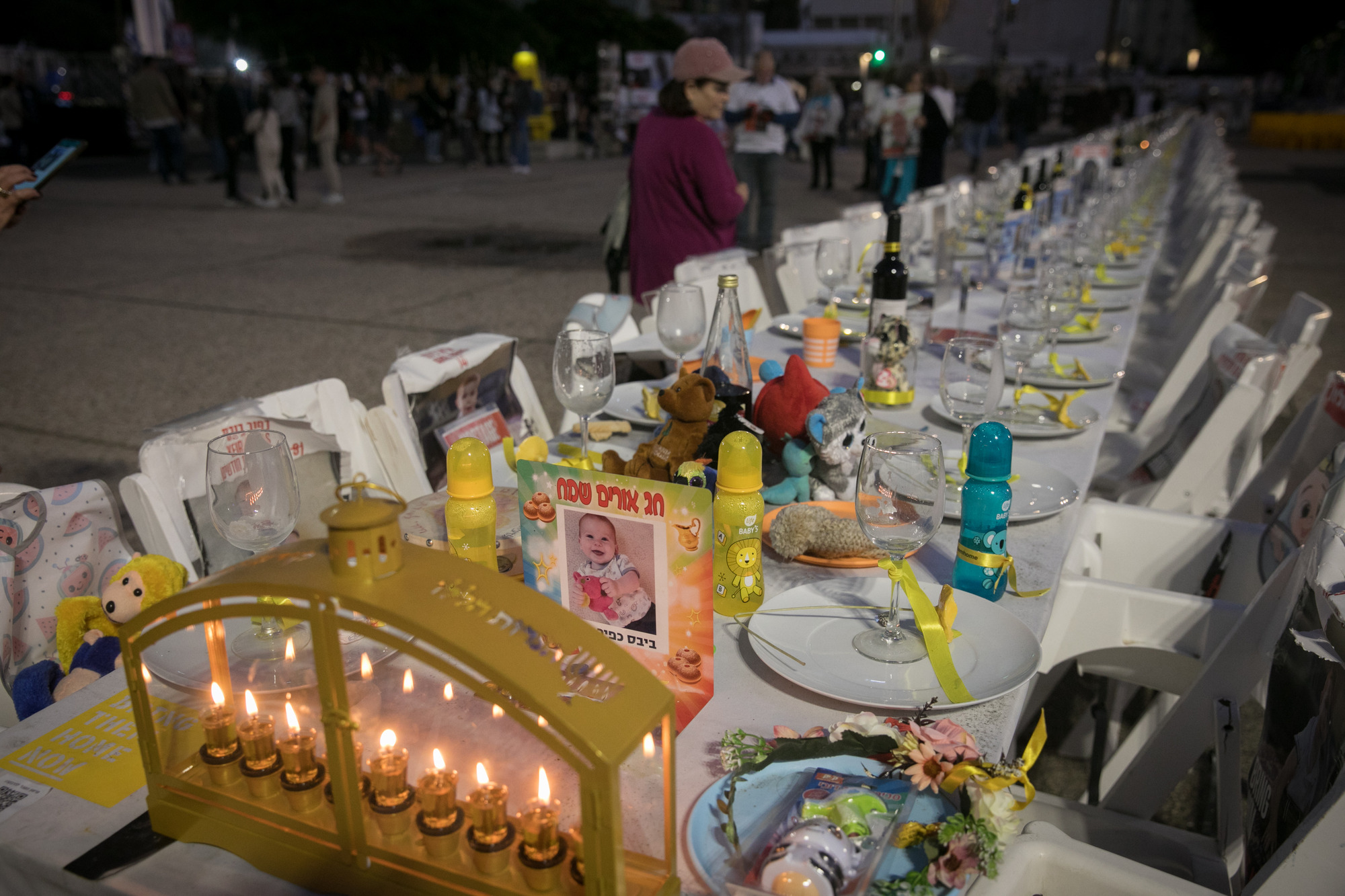One Word Connects Joseph Thrown into the Pit, the Hasmonean Struggle, and the Hostages in Gaza
Just like the stories of Joseph and his brothers, the Hasmonean struggle revolves around the question of fraternity among siblings—a question that today challenges the modern Jewish kingdom – The State of Israel.

Photo by Miriam Alster/Flash90
The Jewish calendar annually aligns the celebration of Hanukkah with the weekly Torah portion Miketz, which recounts Joseph's redemption and release from the pit where he was imprisoned.
At first glance, there appears to be no connection between the series of events surrounding Joseph's sale, his descent from favor in Potiphar's house, and his extraordinary rise to become Egypt's viceroy, and the Hasmonean struggle—a story of religious and national resistance culminating in the Hanukkah miracle, when a family of priests from Modi'in rose against the Greco-Slavic ruler and his decrees against religious freedom and the desecration of the Holy Places in Israel.
However, beyond the well-known version that attributes the Hasmonean revolt to the Greeks forcing the Jews to desecrate the Temple altar and sacrifice a pig upon it, rabbinic commentaries (midrashim) offer an additional narrative. According to this version, the revolt began when the Maccabees’ sister (referred to as Hannah in some sources and Judith in others) was subjected to the custom of jus primae noctis—the "first night" practice whereby every bride was compelled to spend the first night before her marriage with the local governor. The story goes that after she created an uproar and refused to comply with this vile tradition, her brothers rose to defend her, rebelled against Antiochus IV, triumphed, and established the second independent Jewish kingdom in history.
In light of this version, we can see a surprising thread that weaves these events together: the thread of fraternity.
Joseph arrived in Egypt after his brothers—Jacob’s sons from other wives—betrayed him, plotted to kill him, and ultimately sold him to a caravan heading to Egypt. After rising to prominence as viceroy, safeguarding Egypt from famine while the entire Middle East suffered drought and hunger, Joseph’s brothers came to Egypt, like many other regional families, to purchase food from that wealthy land. Joseph leveraged his position to test whether they would once again betray familial bonds and abandon Benjamin, his only full brother from Rachel, or whether they had learned from the episode of his sale and amended their ways. Only when they passed the test by protecting Benjamin with their own lives did Joseph reveal himself to them, reuniting the family of Israel.
The story of the Hasmonean kingdom also hinges on the question of fraternity. The kingdom's origins lie in the Hasmonean brothers’ struggle to defend their sister's honor. Its downfall, culminating in its easy conquest by Rome, occurred due to the fraternal conflict between Hyrcanus and Aristobulus, later heirs to the Hasmonean dynasty.
The challenge of fraternity continues to accompany the modern independent Jewish kingdom—the State of Israel. Events of the past two years have sharpened the differences and divisions among political factions while simultaneously deepening the awareness that “we are all sons of one father,” sharing a common destiny.
The challenge of fraternity remains ever present. It calls on us to heed the cries of our brothers, trapped in the depths of Gaza’s pits and tunnels, and to bring them back home. It urges us to remember, and truly internalize, that despite our differences, we are bound as brothers. Through the power of fraternity, we found unity and redemption in the past; through that same bond, we will unite once again—and together, we shall prevail.
